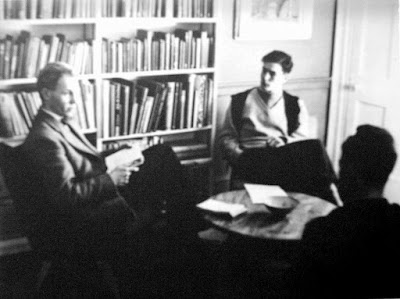How does teaching at university compare to teaching at school, and what are the benefits of the tutor system used at Oxford? A retired fellow and tutor from Oxford University offers some key thoughts on why the tutor system is effective.
Interview conducted on Thursday 30th December in the study of Dr Z.A.Pelczynski.
Recorded onto a Roland professional digital recorder (Edirol), downloaded onto a PC and transferred to Wave Pad, transcribed and edited. The opening question was re-recorded to make it more succinct and the levels/amplitude adjusted. The initial length of Question 1, given here, was cut from 00:09:00 to 00:04:05. This included removing a 90 second anecdote that was better suited to answering a later question, and compressing some 20+ hesitations/circumlocutions and repetitions … hopefully without diminishing the feel of the piece.
_________________________________________________________________________________
TRANSCRIPT FROM EDITED RESPONSE (Original duration 09:00)
Jonathan Vernon:
My name is Jonathan Vernon. I am studying for a Masters in Open and Distance Education with the Open University. The purpose of this interview is to find out what it means to teach in tertiary education compared to teaching in a primary or secondary school.
 |
| From Drop Box |
Dr Zbigniew Pelczynski:
There are two things about university teaching, one is imparting knowledge or transferring knowledge, and it is assumed that there is somebody who is a specialist on the subject; they have written a book, studied the subject or taken a degree or two in it, and so on, and then you need someone who is an absolute beginner in the subject and he's passing on this knowledge to him and which through the process of teaching, whether it is lectures, seminars or tutorials it filters down to the student.
So this is all based on your knowledge, of you having studied it, read about it, thought about it, and you sort, of passing on this knowledge, in some way or the other to the student.
 |
| From Drop Box |
But there is a completely different aspect of knowledge, which is not passing on the knowledge, but teaching the student how to acquire and proess the knowledge by himself.
In this kind of thing there’s a sort of three things involved, first of all there’s the tutor who first of all actually introduces the subject and indicates roughly, the sort of the scope and the direction then there’s the student who’s doing actually a kind of mini research project. He goes to libraries, he's got to read as many of the books as he's got time for, extract was is relevant, make notes, then think about it, and process it, and analyse it, and synthesize it ... which is the beautiful thing about the Oxford system, that it has got these two aspects: first of all you have to chop up the material into bits, and extract it, but then you've got to reassemble it according to the topic, to the essay subject that you have, and this is a kind of synthetic thing so it trains you in both those skills.
Essentially, skills is the crucial thing, you're developing, you’re not teaching them, you're not imparting knowledge, you are helping them acquire the skills: rapid reading, extracting information, analysis, synthesis and finally presenting it, because presentation is an extremely important thing, so this is why I think the Oxford system is so marvellous, you know, this 1 on 1 or 2 on 1, or 3 on 1 tuition, virtually all the time, with just a minimal number of lectures, and seminars, and revision classes, but it's a sort of such an extraordinary investment; as what it means is that people who have gone through this process for three years of doing this kind of thing have, I mean, absolutely a trained mind ... three years of a BA, or four sometimes is absolutely enough.
 |
| From Drop Box |
The point is, the other system, the knowledge is processed by somebody else, you see, it’s processed in books, it’s processed in lectures and so on. So what then happens is the knowledge is pre-digested, it is processed, you only, I mean your work is mostly understanding it in a passive sort of way and memorising it and adapting it to the sort of exam questions you get, so I'm a great sort of believer in the system, but at the same time I realise that it is a highly elitist system, it's an extremely expensive system, you know, instead of taking, 20, 30 or 50 people and giving them a lecture, I had 10 students, you know, who had me for an hour or so every week.
Duration: 00:04.07 
No comments yet. Be the first to say something!